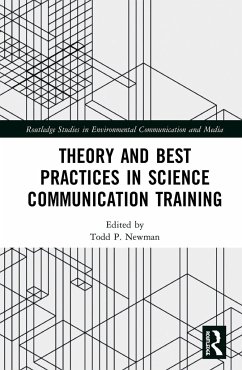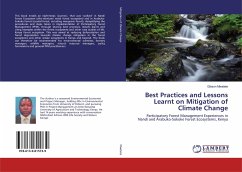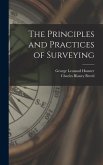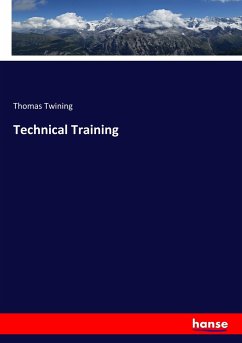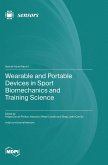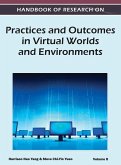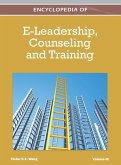Theory and Best Practices in Science Communication Training
Herausgeber: Newman, Todd P.
Theory and Best Practices in Science Communication Training
Herausgeber: Newman, Todd P.
- Gebundenes Buch
- Merkliste
- Auf die Merkliste
- Bewerten Bewerten
- Teilen
- Produkt teilen
- Produkterinnerung
- Produkterinnerung
This edited volume translates the growing body of research in science communication, education and journalism to inform best practices in science communication training programs around the world.
Andere Kunden interessierten sich auch für
![Best Management Practices for Drip Irrigated Crops Best Management Practices for Drip Irrigated Crops]() Best Management Practices for Drip Irrigated Crops201,99 €
Best Management Practices for Drip Irrigated Crops201,99 €![Best Practices and Lessons Learnt on Mitigation of Climate Change Best Practices and Lessons Learnt on Mitigation of Climate Change]() Gibson MwateteBest Practices and Lessons Learnt on Mitigation of Climate Change50,99 €
Gibson MwateteBest Practices and Lessons Learnt on Mitigation of Climate Change50,99 €![The Principles and Practices of Surveying The Principles and Practices of Surveying]() George Leonard HosmerThe Principles and Practices of Surveying42,99 €
George Leonard HosmerThe Principles and Practices of Surveying42,99 €![Technical Training Technical Training]() Thomas TwiningTechnical Training31,90 €
Thomas TwiningTechnical Training31,90 €![Wearable and Portable Devices in Sport Biomechanics and Training Science Wearable and Portable Devices in Sport Biomechanics and Training Science]() Wearable and Portable Devices in Sport Biomechanics and Training Science73,99 €
Wearable and Portable Devices in Sport Biomechanics and Training Science73,99 €![Handbook of Research on Practices and Outcomes in Virtual Worlds and Environments (Volume 2) Handbook of Research on Practices and Outcomes in Virtual Worlds and Environments (Volume 2)]() Harrison Hao YangHandbook of Research on Practices and Outcomes in Virtual Worlds and Environments (Volume 2)311,99 €
Harrison Hao YangHandbook of Research on Practices and Outcomes in Virtual Worlds and Environments (Volume 2)311,99 €![Encyclopedia of E-Leadership, Counseling, and Training (Volume 3) Encyclopedia of E-Leadership, Counseling, and Training (Volume 3)]() Victor WangEncyclopedia of E-Leadership, Counseling, and Training (Volume 3)607,99 €
Victor WangEncyclopedia of E-Leadership, Counseling, and Training (Volume 3)607,99 €-
-
-
This edited volume translates the growing body of research in science communication, education and journalism to inform best practices in science communication training programs around the world.
Produktdetails
- Produktdetails
- Verlag: Routledge
- Seitenzahl: 186
- Erscheinungstermin: 26. Juli 2019
- Englisch
- Abmessung: 240mm x 161mm x 15mm
- Gewicht: 449g
- ISBN-13: 9781138478152
- ISBN-10: 1138478156
- Artikelnr.: 57382586
- Herstellerkennzeichnung
- Libri GmbH
- Europaallee 1
- 36244 Bad Hersfeld
- gpsr@libri.de
- Verlag: Routledge
- Seitenzahl: 186
- Erscheinungstermin: 26. Juli 2019
- Englisch
- Abmessung: 240mm x 161mm x 15mm
- Gewicht: 449g
- ISBN-13: 9781138478152
- ISBN-10: 1138478156
- Artikelnr.: 57382586
- Herstellerkennzeichnung
- Libri GmbH
- Europaallee 1
- 36244 Bad Hersfeld
- gpsr@libri.de
Todd P. Newman is an assistant professor in the Department of Life Sciences Communication at the University of Wisconsin-Madison, USA where he teaches courses on science communication, strategic communication, and marketing. Newman is the co-author of Brand (2018) -- which examines the role of brand strategy in society, including scientific debates -- and previously conducted research on science communication training as a postdoctoral associate at the University of Connecticut and the Alan Alda Center for Communicating Science at Stony Brook University.
Part 1. The Scientist as a Strategic Communicator 1. Scientists, Trainers,
and the Strategic Communication of Science 2. What Studies of Expertise and
Experience Offer Science Communication Training 3. The Meaning of
Public-Private Partnerships for Science Communication Research and Practice
4. Science Engagement and Social Media: Communicating Across Interests,
Goals, and Platforms Part 2. Science Communication Training Design and
Assessment 5. Training Scientists to Communicate in a Changing World 6. The
Challenges of Writing Science: Tools for Teaching and Assessing Written
Science Communication 7. Insights for Designing Science Communication
Training from Formal Science Education: Apply the Mantra and be Explicit 8.
Evaluating Science Communication Training: Going Beyond Self-Reports Part
3. Future Directions for Science Communication Training 9. Abandoning the
Runaway Train: Slowing Down to Draw on Lessons Learned from Health
Communication Training 10. A Metro for Science Communication: Building
Effective Infrastructure to Support Scientists' Public Engagement
and the Strategic Communication of Science 2. What Studies of Expertise and
Experience Offer Science Communication Training 3. The Meaning of
Public-Private Partnerships for Science Communication Research and Practice
4. Science Engagement and Social Media: Communicating Across Interests,
Goals, and Platforms Part 2. Science Communication Training Design and
Assessment 5. Training Scientists to Communicate in a Changing World 6. The
Challenges of Writing Science: Tools for Teaching and Assessing Written
Science Communication 7. Insights for Designing Science Communication
Training from Formal Science Education: Apply the Mantra and be Explicit 8.
Evaluating Science Communication Training: Going Beyond Self-Reports Part
3. Future Directions for Science Communication Training 9. Abandoning the
Runaway Train: Slowing Down to Draw on Lessons Learned from Health
Communication Training 10. A Metro for Science Communication: Building
Effective Infrastructure to Support Scientists' Public Engagement
Part 1. The Scientist as a Strategic Communicator 1. Scientists, Trainers,
and the Strategic Communication of Science 2. What Studies of Expertise and
Experience Offer Science Communication Training 3. The Meaning of
Public-Private Partnerships for Science Communication Research and Practice
4. Science Engagement and Social Media: Communicating Across Interests,
Goals, and Platforms Part 2. Science Communication Training Design and
Assessment 5. Training Scientists to Communicate in a Changing World 6. The
Challenges of Writing Science: Tools for Teaching and Assessing Written
Science Communication 7. Insights for Designing Science Communication
Training from Formal Science Education: Apply the Mantra and be Explicit 8.
Evaluating Science Communication Training: Going Beyond Self-Reports Part
3. Future Directions for Science Communication Training 9. Abandoning the
Runaway Train: Slowing Down to Draw on Lessons Learned from Health
Communication Training 10. A Metro for Science Communication: Building
Effective Infrastructure to Support Scientists' Public Engagement
and the Strategic Communication of Science 2. What Studies of Expertise and
Experience Offer Science Communication Training 3. The Meaning of
Public-Private Partnerships for Science Communication Research and Practice
4. Science Engagement and Social Media: Communicating Across Interests,
Goals, and Platforms Part 2. Science Communication Training Design and
Assessment 5. Training Scientists to Communicate in a Changing World 6. The
Challenges of Writing Science: Tools for Teaching and Assessing Written
Science Communication 7. Insights for Designing Science Communication
Training from Formal Science Education: Apply the Mantra and be Explicit 8.
Evaluating Science Communication Training: Going Beyond Self-Reports Part
3. Future Directions for Science Communication Training 9. Abandoning the
Runaway Train: Slowing Down to Draw on Lessons Learned from Health
Communication Training 10. A Metro for Science Communication: Building
Effective Infrastructure to Support Scientists' Public Engagement

